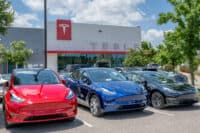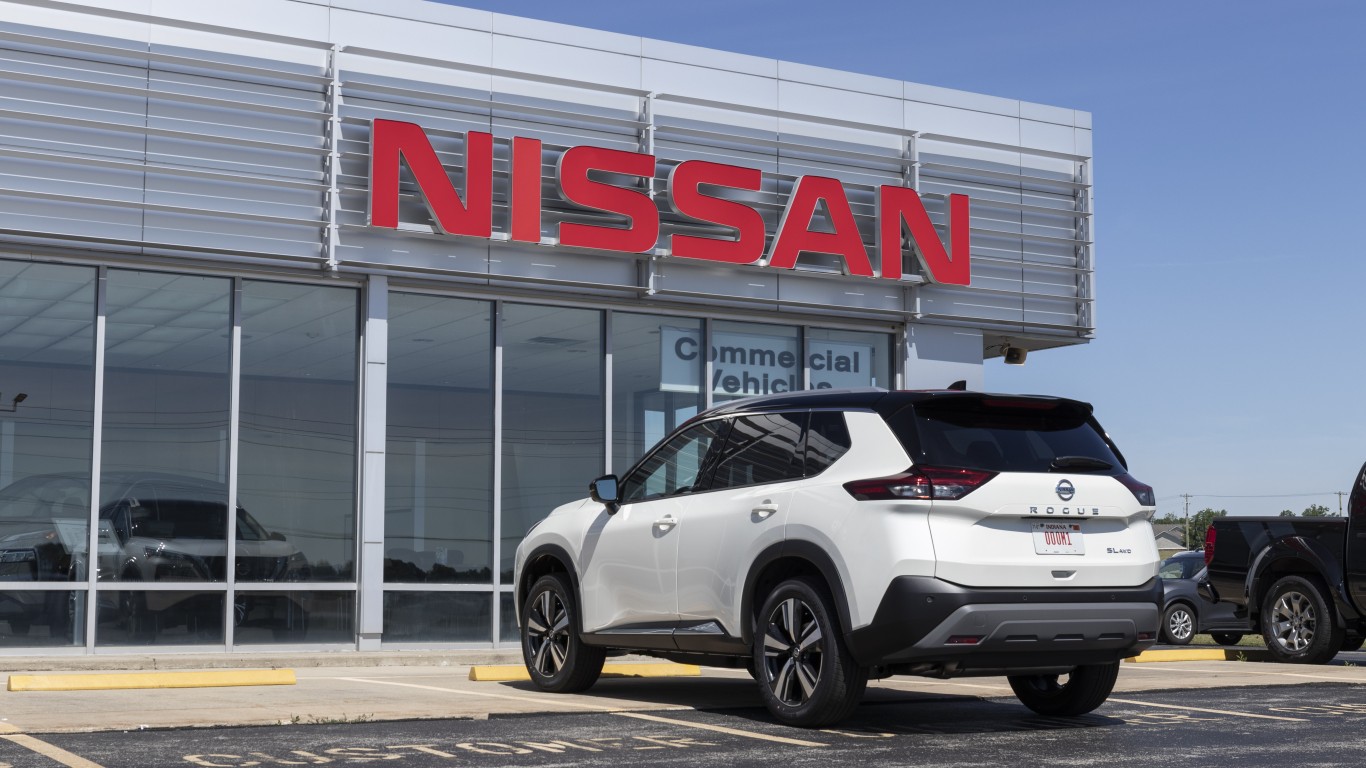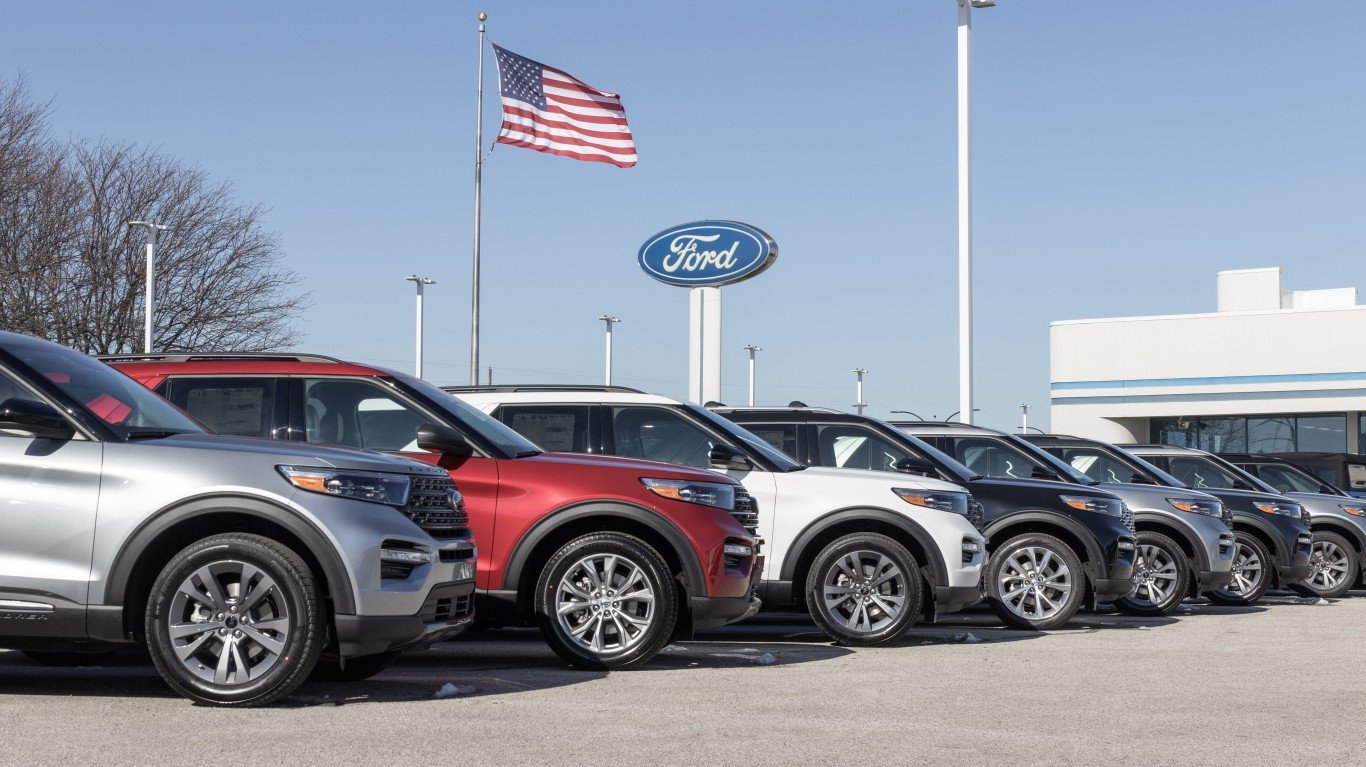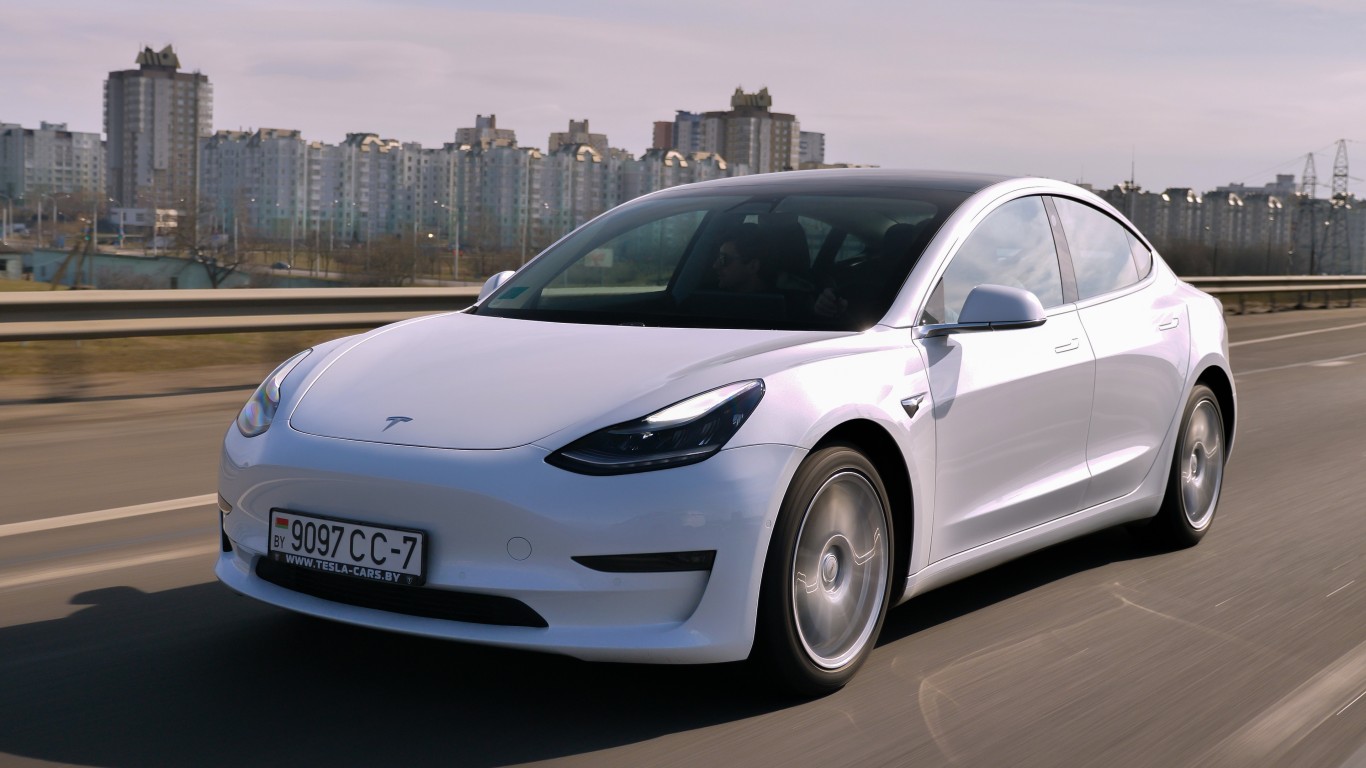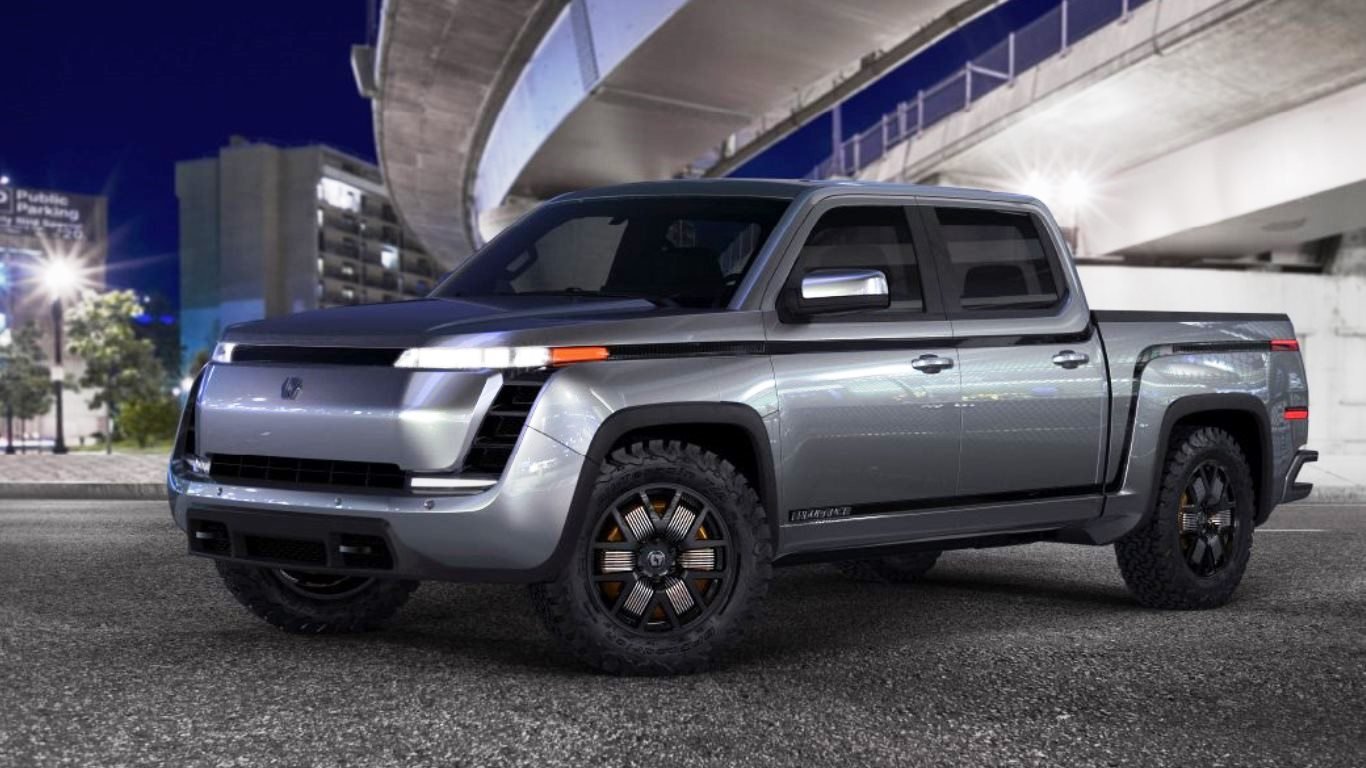

The market for electric vehicles is still in its infancy in 2020, but overall market penetration is set to surge in the next two decades. Amazingly, there still appears to be room in the world for the combustion engines of yesteryear. Some of the top carmakers today may have a lot of catching up to do on their electrification plans.
A report from Morgan Stanley looks far out in the future regarding battery-electric vehicles, to 2040 specifically. The firm sees this vehicle market accounting for 72% of global sales. With global car sales of about 65.5 million units in 2019 (under the 68+ million in 2018 and 2017), this leaves an exponential opportunity for growth in the electric vehicles coming in the years ahead.
Morgan Stanley sees Volkswagen selling 11.2 million battery-electric vehicles in 2040 and being in the top spot for total unit sales. One of the drivers for VW is its dealings with Ford (see below), and VW has existing factories and supply chains that it can leverage up to grow its electrification efforts.
While there are many aspects for the global car market, U.S. investors, consumers and dealers are likely to be most concerned with the efforts and opportunities within the United States.
Toyota Motor Corp. (NYSE: TM) is seen as a distant second behind VW, with 6.5 million battery-electric vehicles in 2040. Morgan Stanley noted in June that Tesla’s market was second behind Toyota, but that has now flipped with Tesla worth $265 billion and Toyota’s market cap at about $180 billion.
Tesla Inc. (NASDAQ: TSLA) may be in other non-car businesses already, but the absolute pure-play leader of today is expected to sell 4.9 million battery-electric vehicles in 2040. Analyst Adam Jonas has had some controversy in Tesla with price targets under the share price that kept rising. In 2019, Tesla’s count was roughly 367,500 vehicles, and that was up about 50% from 2018.
With newly expanding production in the United States and China, this puts Tesla’s room for growth at more than 10 times the current output rate over the next two decades. Morgan Stanley actually has an Underperform rating on Tesla, although the firm did raise its target to $1,050 from $740 in late July, although the firm’s “bullish” case with Tesla becoming a much larger automaker was moved up to $2,500 from $2,000. Jonas also noted that Tesla as a company was currently far smaller in reach and size, versus Apple and Amazon when they first reached these valuations, calling it a significant valuation premium along with the cautious view.
General Motors Co. (NYSE: GM) is projected to be selling 4.1 million electric vehicles in 2040. Morgan Stanley previously suggested that GM switch its name to Ultium after its new modular platform and battery system. GM CEO Mary Barra also has said that converting the entire fleet of American cars to batteries away from gas-powered engines will take decades to accomplish.
There has also been talk that GM may spin off part of or all its electric vehicle efforts, and Morgan Stanley even suggested back in June that GM’s electric vehicle business could be worth $100 billion alone, and it more recently suggested that GM needs a narrative change. GM has partnered with EVgo to add more than 2,700 fast charging stations over the next five years to help expand the U.S. number of charging locations. GM’s Hamtramck plant in Detroit is moving to all-EV production, and there is the coming GMC Hummer EV expected in 2021, along with a new Chevy Bolt model.
Perhaps the big question is where this leaves Ford Motor Co. (NYSE: F) over the next two decades, either alone or with Volkswagen. Ford recently named Jim Farley as its chief executive, and the goal inside the company is not to catch up to Tesla but to lap Elon Musk and company. Ford has already partnered with Rivian for battery-electric vans and delivery trucks and it has invested with Volkswagen into a robocar with artificial intelligence outfit Argo AI. Ford has its upcoming Ford Mustang Mach-E for the all-electric market, and its pre-orders ($500 deposits) indicated that it was sold out in late 2019 as production was expected to be limited to 50,000 units of the crossover globally for the first 12 months.
Ford also announced back in June that it has expanded a partnership with Volkswagen for a medium pickup truck to be built by Ford and sold by Volkswagen starting in 2022, and the two companies are projecting a combined total of 8 million units produced over three commercial vehicles.
Being able to manufacture batteries comparable to costs of combustion engines is just one step, and ditto for the cost of gasoline. There are many other potential players for electric vehicle growth from, including Nikola, Nio, Lordstown Motors, WorkHorse, and many other companies want their share of the electric vehicle pie. How fast the electrification takes hold depends on many factors.
Sponsored: Attention Savvy Investors: Speak to 3 Financial Experts – FREE
Ever wanted an extra set of eyes on an investment you’re considering? Now you can speak with up to 3 financial experts in your area for FREE. By simply
clicking here you can begin to match with financial professionals who can help guide you through the financial decisions you’re making. And the best part? The first conversation with them is free.
Click here to match with up to 3 financial pros who would be excited to help you make financial decisions.
Thank you for reading! Have some feedback for us?
Contact the 24/7 Wall St. editorial team.
 24/7 Wall St.
24/7 Wall St.